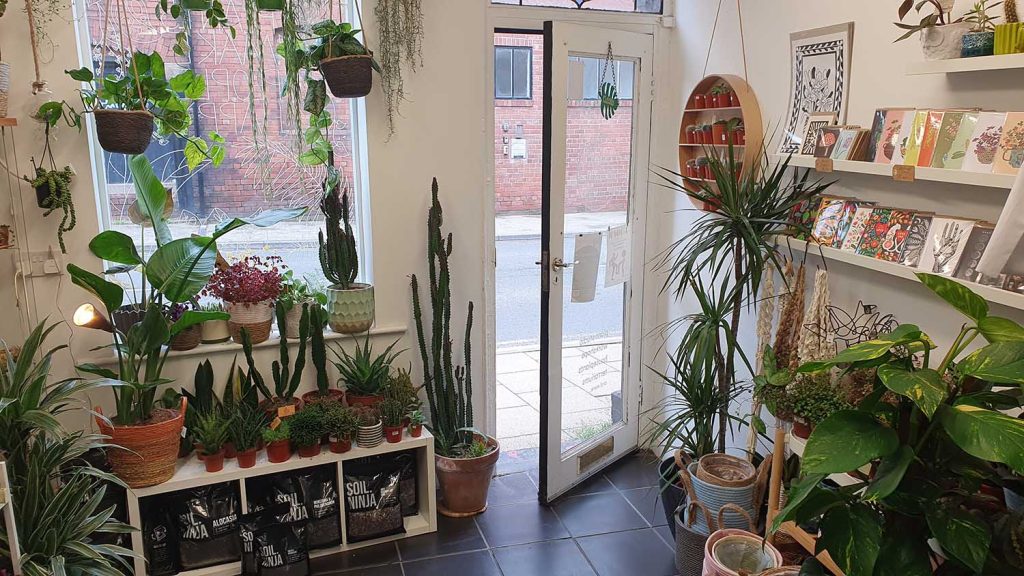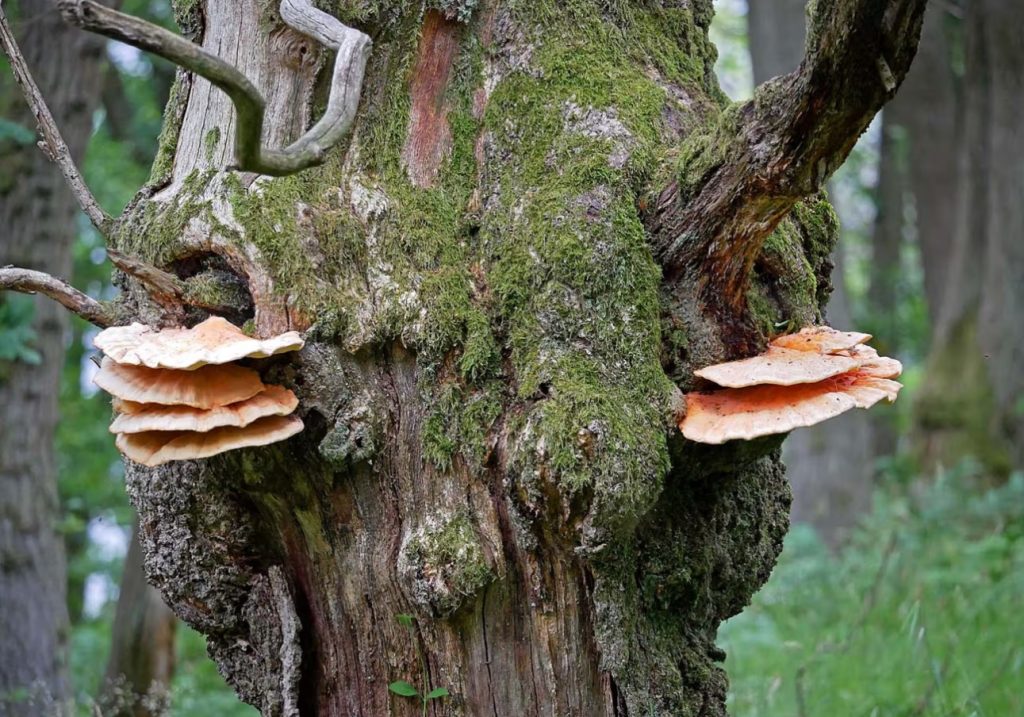Mango memories

The heat is driving her mad. The whirring fan on top of her bed seems to be spreading more hot air rather than cooling it down. Bhanu looks out of the big glass window of her bedroom and sees a big forest of apartments all around her. And the sun is beating down on all of them, creating an unreal mirage.
Bhanu moved to Mumbai after finishing her degree in Banaras, a city smaller and less looming. At least her university campus was green and cozy, a small oasis in the summers. The summers in India were becoming increasingly unbearable every passing year and the buildings in her apartment complex definitely surpassed the trees.
Bhanu’s favorite color was green. And it surely stemmed from the fact that she loved being surrounded by plants, growing, blooming and bearing fruits, and spending time in the cool and relaxing embrace of trees. Her ancestors were farmers; they grew seasonal vegetables, along with wheat, corn and rice, had goats and cows for milk, and a sylvan and fragrant mango orchard, lined with different kinds of mango trees. Although they were not affluent, life was peaceful. But a new wind of modernization and development was blowing.
In the course of two generations, the family gradually migrated to the cities, in search of jobs and modern amenities, chasing that ephemeral city dream. No one told them of the crowded streets, dirt and lack of fresh air. Tangled in the vicious circle of education, career, a better salary and more material benefits that she grew up with, Bhanu always felt something was missing. After moving to Mumbai, Bhanu dreamt of having a little green corner in her flat; she shared it with three other people. There was not enough space for the humans, but she had managed to squeeze some green potted friends into nooks and corners.
During the summer, she sorely missed the green surroundings and the fresh produce from her village. Her earliest memories of her childhood were of going back to her ancestral village during her summer vacation and enjoying mangoes from their own orchard, chasing behind the goats that her grandmother gave her to herd and watching the stars in the clear dark night sky as she lay on her rustic cot on the open terrace of the house.
A small whiff of fresh air broke her reverie and she glanced towards the little jasmine plant in her bedroom window that always made her smile.
Next day, as she was sitting down for lunch in the tiny terrace garden of her office, one of her colleagues offered her a little box. She peeked in – the sweet wafting smell was familiar and they looked so delicious.
‘Mangoes, my absolute favorite,’ she exclaimed.
Bhanu took a bite. The mangoes were yummy – juicy, pulpy and sweet in every bite.
‘Isha, these are awesome. I wish I could get some more,’ Bhanu moaned.
Isha, her colleague who had offered her the mangoes, explained that these were from her own farm. Her husband, Sameer, who was a chef, had bought a mango orchard on the outskirts of the ever-growing city. He wanted to grow the produce that went to his restaurant, to maintain freshness and taste without any chemicals involved, and this was a step in that direction.
‘Why don’t you come and visit our orchard this weekend? It would be fun and you could pick the mangoes you want,’ said Isha.
‘Are you sure about this, because I would love to!’ chirped Bhanu.
Earlier that week, Bhanu had bought some mangoes from a beautifully arranged shelf in the fancy supermarket in her neighborhood. She had hurried home, dumped everything else in anticipation of getting her teeth into those mangoes. But what she ate didn’t satisfy her – they were sweet, but the complexity of taste was lacking. Over the years, farmers had resorted to different different practices that increased the yield but killed the taste. She had heard about the use of chemicals to ripen fruit to get the produce early to the market.
But the mangoes from Isha made her nostalgic – memories of the orchard in her village flashed in her mind and she looked forward to the weekend.
On Saturday morning, Bhanu got up earlier than usual, without a trace of her usual weekend laziness. She was eager to discover Isha and Sameer’s mango orchard.
After braving the crazy Mumbai traffic and a jostling ride in a bus, she was on the outskirts, the sylvan surroundings gradually washing all the city stress out of her.
She met Isha at the rusty metal gates and they walked on an unpaved path shaded by the trees swaying in the late morning breeze. The sun was getting stronger, but under the canopy it was still bearable.
‘It’s a few minutes walk to our little farmhouse and then we can have a cool sip of aam panna. I am sure that will bring some respite to our sweltering souls,’ said Isha.
Bhanu smiled and looked forward to aam panna, a cooling drink made of raw mangoes and herbs.
As soon as they had reached the farmhouse, they heard a commotion. Bhanu pointed to her husband on the nicely painted veranda under the terracotta roof. Sameer was on the phone, talking very loudly to someone. His tone didn’t sound happy and his brows were knitted in frustration.
After a brief introduction, Sameer showed Bhanu around all the trees, the different species and how they were all grown without any chemical pesticides and fertilizers. Sameer was a big believer in permaculture, which he had read about and researched, and he was growing different plants to help regenerate the soil, but also that he could serve on the menu of his ‘farm to table’ themed restaurant.
He had different layers in his orchard: groups of plants that, when grown together, helped in pollination, but also stopped unwanted weeds. His orchard was buzzing with bees and birds chirping around. Kanu felt a sense of warmth and joy rise in her as she let her senses be immersed in the surroundings.
An hour and half later, after gathering a basket full of mangoes she liked, Bhanu was sitting and sipping the aam panna with the hosts, when Sameer told Isha about his phone call earlier. He was stressed as a large order of mangoes had been cancelled last minute and he didn’t know what to do.This was a special order for a wedding and the mangoes were ripe, and getting them into the market at that moment wouldn’t help them or their business. His restaurant couldn’t process so much at that moment.
As Bhanu sat there, listening to the crisis Sameer and Isha were talking about, she had a flashback. She thought back to the time her grandfather had used to make this delicious amavat, or mango leather, from extra-ripe mangoes. Nowadays, they made it through an industrial process, but her grandfather had used it to preserve the produce that was overripe and couldn’t be eaten in the household anymore. He would pulp it a small container, lay out a thin muslin cloth on the terrace roof of her ancestral house that got ample sun throughout the day, and meticulously create layers of that pulp, one layer a day. At the end of the season they would have a sheet of yummy mango leather that they could consume as a snack or mini dessert.
‘I have an idea, although I am not sure if you will agree, but hear me out,’ Bhanu interjected.
She explained the process of making amavat and her grandfather’s technique of utilizing mangoes instead of turning them into waste. Isha and Sameer are not so convinced, but they decided to do some quick research to see the feasibility of this plan.
It turned out that they could carry out this exercise. It would need some equipment from Sameer’s kitchen and some help. Isha and Sameer get busy gathering all the resources they needed for this mission. Bhanu stayed over and helped out with the preparation and making of the mango leather, along with some other friends of Sameer and Isha’s who had been hailed to help in this expedition.
Five weeks later, Bhanu enters her office after a crazy morning commute that started with the struggle of finding an autorickshaw. She is just putting her handbag down when she notices a beautifully wrapped box on her desk. She is curious and she unties the straw ribbon on top and takes off the lid.
Her eyes twinkle – packed inside are small delicate rolls of thick orange mango leather and a note from Sameer and Isha thanking her for her timely suggestions, as well as her help, that led to creating value and avoiding a lot of waste. As she lifts a roll, she finds a lovely note with a dinner invitation to Sameer’s restaurant, which is presenting a new ‘farm to table’ dessert that evening.





